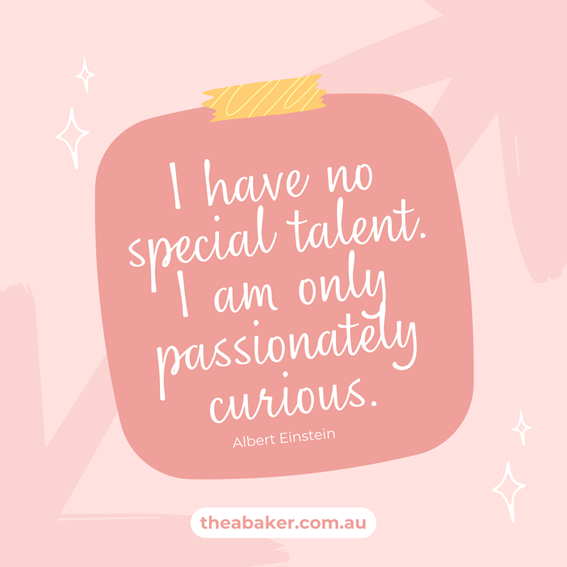Curiosity killed the cat
Curiosity killed the cat
** no cats were killed in the writing of this week’s blog **
I grew up regularly being told that I was asking too many questions, that I was ‘nosey’ and that ‘curiosity killed the cat’. I also remember being very confused about that phrase because it seemed quite unsettling to think that just by asking questions animals could die, and it definitely confirmed for me that asking questions really must be a very bad thing to do. So, I grew up thinking that I was wrong or bad for asking all the questions that, to my inquisitive little mind, really needed answers. Like the time I wondered how much my dad earned. I was about eight or nine years old, and I was told in no uncertain terms that it was incredibly rude to ask him that. I think I was just trying to make sense of what ‘work’ was and how being paid for it happened and why. I was curious. I never did find out the answer, but when I reflect on that conversation, I am aware of what a missed opportunity that interaction was.

Fast-forward nearly 40 years and I ask questions for a living – both as a psychotherapist and as a researcher. Having a curious mind has played a really significant part in my varied career and curiosity is one of my core values – it really shapes who I am, what I do, why I do it, and how I show up in the world. Whilst I might be biased (because I’m a big fan of curiosity), I happen to think that asking questions is one of the most important skills any of us can develop. Let me tell you a bit about why:
- When we are curious about our own experiences it allows us to hold the event(s) separate from our feelings and thoughts about them, which in turns allows us to reflect on, and re-consider any unhelpful meanings we might have ascribed to them.
- Curiosity has a direct relationship with our ability to self-reflect, which is something that helps us grow, develop new skills, and explore new opportunities.
- Being curious (and self-reflective) allows us to build confidence about our ability to navigate challenges because we start to notice (curious, non-judgemental observation of our inner world) how we respond in certain situations, change our behaviour to explore new ways of being and doing.
- When we are curious within our relationships we are actively creating and forging connection. When we ask questions of people, we are choosing to open up a conversation – it says that we are interested in them which conveys care. In turn, this provides opportunities for greater understanding, insight, and connection.

Take that question I asked my dad many years ago. If he had responded to me that I’d asked an interesting question (validation) and had then asked me how knowing his salary would help me understand the world better, we could have had a really fascinating and connecting conversation. When I sit with clients and we are exploring some of aspect of their life, asking well-considered questions, shrouded in compassion and a genuine interest in them as a human, is not only important to the ‘job’ (I really don’t see it as a job!) that I’m doing in that moment, but is also critical in creating and strengthening a therapeutic relationship. Curiosity enables me to better understand my clients and their inner world, it allows them to tell their stories more fully, and is creates connection and safety. When I can do that, then I can support them to do the same.
This is the same outside of the therapy space too – any relationship grows where curiosity is present. It turns out curiosity doesn’t kill cats (or any other animals for that matter). Curiosity is like an exciting doorway into another person’s world – what could possibly be bad about that?
If you’d like to curiously explore your relationship with your inner-world and would like a safe space to talk about how they may impact your mental health, please get in touch with us: www.theabaker.com.au / hello@theabaker.com.au / 03 9077 8194.
